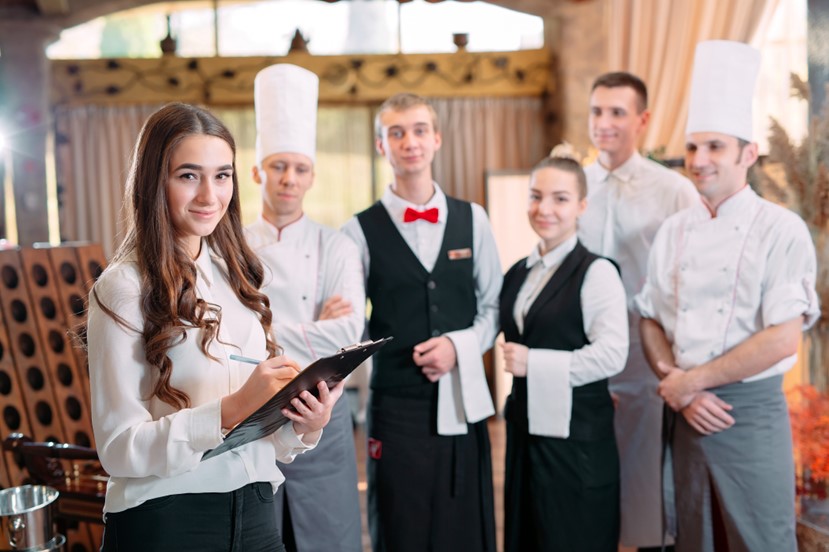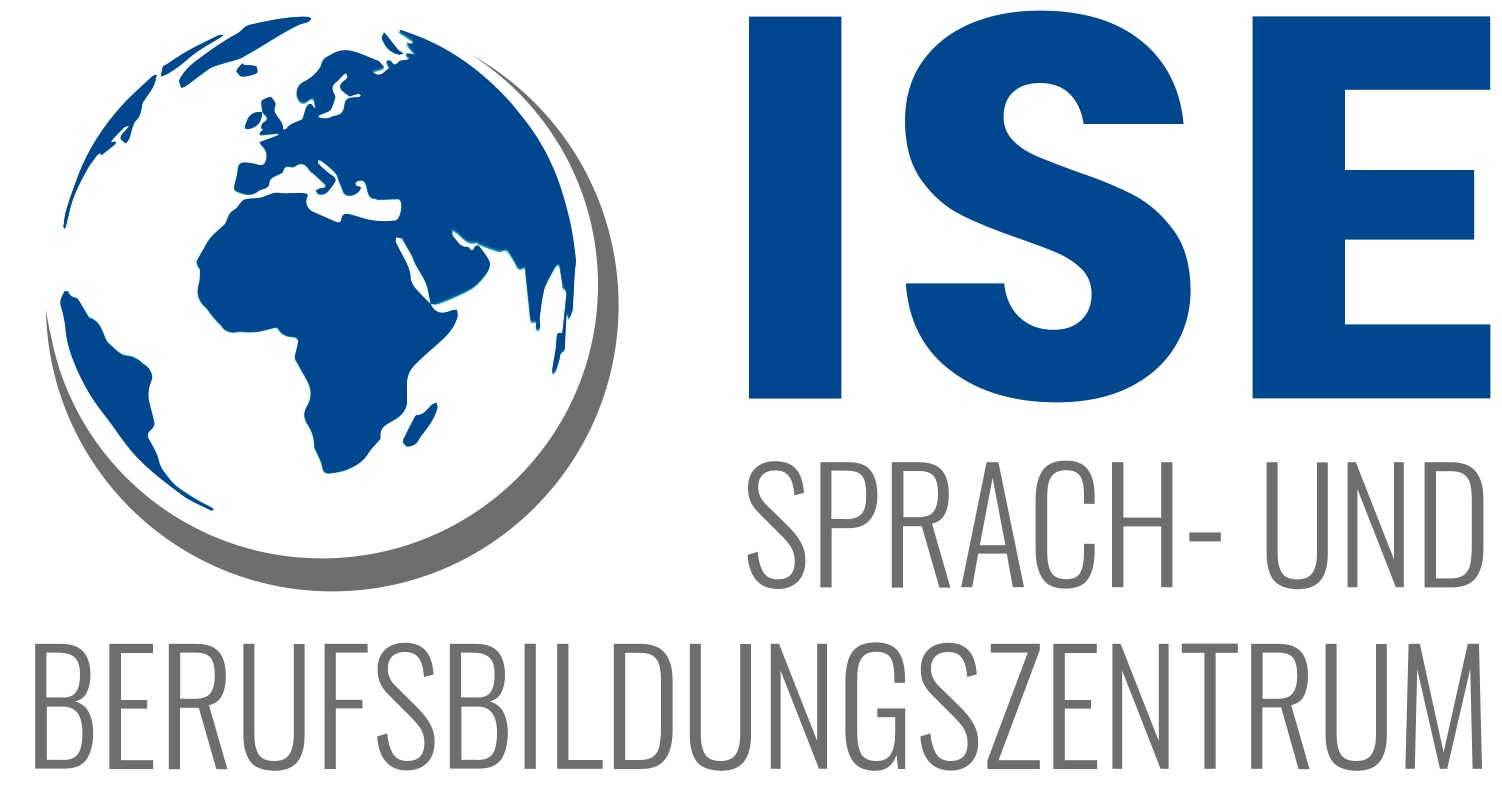
Registration:
ISE Sprach- und Berufsbildungszentrum GmbH
Kaiser-Ludwig-Ring 9, 92224 Amberg
Phone: 09621 7868-0
E-Mail: info@ise-berufsbildung.de
Location:
ISE Sprach- und Berufsbildungszentrum GmbH
Fleurystr. 1, 92224 Amberg
Duration of measure:
Not currently planned
Class times:
Monday – Thursday
08:00 a.m. – 3:00 p.m
Friday
08:00 a.m. – 2:00 p.m
Target group: People who are registered as unemployed or looking for work at the employment agency or job center, as well as employees who meet the funding requirements for retraining.
Financial support: If the personal requirements are met, funding can be provided by the Employment Agency through an educational voucher. Additionally, other entities such as the German Pension Insurance, Bundeswehr, Jobcenter, private insurances, etc., or private individuals may cover the costs of the course.
Certificate of Participation: Participants receive an ISE certificate, a certificate of participation and, if the final examination is successful, an IHK certificate from the IHK with a certificate of professional qualification.
Number of participants: 15 people
Do you have any questions? Contact us, we're here to assist you!
Here you will receive
Information material to download:
Flyer
Measure content:
Section A: Interdisciplinary professional skills, knowledge and abilities
1. Dealing with guests and team members, reflecting on your own role in the company, designing the guest experience as a host or hostess (390 units)
a) design your personal appearance and behavior in an appropriate manner for the company and justify the respective effects; When communicating company events, especially via digital media, observe operational and legal requirements
b) Consider tasks, authorities and responsibilities within the framework of the structural and process organization
c) reflect on the demeanor towards team members, especially colleagues and superiors, and behave in a team-oriented manner as well as accepting, reflecting and giving constructive feedback
d) Receive guests and determine their expectations and wishes with regard to advice, support and services and check the implementation of the expectations and wishes; Receive, classify and respond appropriately to messages and orders
e) Look after guests: provide information and advice about the range of services/products on offer, taking individual and cultural needs/wishes into account, especially when dealing with guests with disabilities
f) reflect on the appearance and role towards the guests and design behavior in a guest-oriented manner; Conduct conversations in a guest- and company-oriented manner and use verbal and non-verbal forms of expression
g) Receive guest reactions, especially complaints, classify them and respond to the situation in accordance with operational requirements; Identify the causes of conflicts and communication disorders and contribute to their resolution; Recognize conflict potential and avoid conflicts;
2. Acceptance and storage of goods (100 UE)
a) Control inventory levels according to quantity and quality, document differences between target and actual inventories; initiate the usual operational corrective measures, participate in inventories and orders
b) Accept goods, assign delivery notes to orders and check goods for weight, quantity, quality and visible defects based on the order note and delivery note; In the event of deviations, initiate the usual operational measures; document the acceptance of goods, the acceptance of empties and the transport goods as well as the return of empties and the transport goods;
c) check goods in compliance with the hygienic and legal regulations as well as the operational requirements, in particular for compliance with the cold chain and durability, also using technical aids; In the event of deviations, initiate the usual operational measures;
d) Store goods in a way that preserves their value in accordance with their requirements and in accordance with operational guidelines
e) observe the occupational health, safety and hygiene regulations in the warehouse, check and clean the warehouse in accordance with operational requirements
3. Basic tasks in the kitchen or in production (340 UE)
a) record work tasks; Select the type and quantity of food according to your needs, taking into account the company's range of food/dishes
b) plan work steps in terms of time and organization;
c) use, clean and maintain devices, machines and consumer goods safely, economically and sustainably; Check for functionality, identify faults/initiate normal operational measures
d) prepare the workplace taking into account hygienic and ergonomic requirements
e) provide food and check its condition, usability and allergens; Producing simple, typical company dishes or dishes according to recipes, observing dietary patterns, hygiene regulations, cost-effectiveness and avoiding food waste
f) Portion and arrange food or dishes according to specifications and participate in product presentation
g) Store food properly in compliance with hygiene standards, check other recycling options or dispose of it
h) control, evaluate and optimize your own work results
4. Basic tasks in business services (60 units)
a) explain the importance of the design, maintenance and cleaning of guest rooms and utility rooms for the guest experience
b) Carry out, check and document cleaning, disinfection and care measures in guest rooms and utility rooms, taking sustainability aspects into account
c) Inspect guest and utility rooms with regard to their use and safety, determine the need for repairs and replacements and take the usual operational measures
d) select operational items, in particular crockery, cutlery and glasses, based on the occasion and provide them in sufficient quantities and maintain and clean them professionally e) contribute to waste avoidance and carry out professional waste disposal in compliance with hygiene regulations and environmental aspects
5. Basic tasks in service (280 UE)
a) Prepare the work area according to the event and provide the resources
b) check the saleability of products
c) serve (non-)alcoholic drinks and prepare infusions and hot drinks in accordance with operational requirements
d) carry out service of food, dishes and drinks according to the operational form of service; Operate the company cash register system
6. Support for sales promotion measures (90 units)
a) implement sales-promoting measures/promotions, especially in guest contact
b) Decorate guest areas for different occasions
c) consider the importance of decoration, lighting, music and temperature for the atmosphere and the guest experience d) participate in suitable advertising materials, advertising media and digital media as well as in monitoring success
Section B: professional skills, knowledge and abilities in the focus on restaurant service
1. Basic tasks in business services (20 units)
a) Prepare guest rooms according to the occasion, season and theme and carry out preparatory and follow-up work
b) check company textiles and materials for usable condition and take appropriate measures for cleaning and care, paying particular attention to value preservation, hygiene and resource conservation
2. Basic tasks in service (180 UE)
a) Receive, process and execute reservations
b) participate in internal service and menu meetings; Prepare guest rooms according to the occasion and according to the gastronomic offer, use decorative elements
c) Receive and seat guests according to operational standards
d) Advise guests about the company's range of food, dishes and drinks, taking into account common diets as well as ingredients and allergens; Actively offer products and services to guests and make additional sales
e) serve and serve food, dishes and drinks taking into account the service process, communicating with guests; Receive guest feedback and process it according to operational guidelines
f) Process payments while applying precautionary measures when accepting means of payment
Section C: cross-focal, integrative skills, knowledge and abilities (imparted throughout the entire retraining period)
a) Organization of the training company, vocational training as well as labor and collective bargaining law (210 UE)
b) Safety and health at work (85 units)
c) Environmental protection and sustainability (85 units)
d) Digitalized working world (30 units)
e) Carrying out hygiene measures (50 units)
Opportunities for employment after completing training:
- gastronomic establishments, e.g. cafés, restaurants,
Canteens, catering companies, system catering - in the hotel and leisure industry
- in healthcare, e.g. in rehabilitation clinics with a restaurant area
- in retail companies with affiliated
gastronomy
Advantages of this professional qualification
- Completed vocational training (IHK qualification)
- Trained specialist (not just labor and assistant)
- Better earning and advancement opportunities
- Good application possibilities at home and abroad
(e.g. Switzerland, Austria) - Shortened training times possible in other dual vocational training systems, e.g. B. Specialist for restaurants and event catering (only 1 year left)
Other important information:
- The retraining includes 1,920 teaching units and 360 units of in-company internship. (1 teaching unit corresponds to 45 minutes each, one internship unit corresponds to 60 minutes each.)
- Participants are granted approximately 26 days of vacation per year of the retraining period. The vacation days are determined by ISE and communicated at the start of the course.
- The costs of the measures are explained in the training contract.
There are no costs for holders of an education voucher. - Literature provided as part of the cost of the measure: Specialist in the hospitality industry with specialist arithmetic (course and workbook), economics and social studies to prepare for exams for hospitality professions
- Costs for the professional clothing required to carry out the internship will be covered by ISE.
- All participants acquire a health certificate (according to Section 43 of the Infection Protection Act).
Certification: The ISE Language and Vocational Training Center is an approved provider under employment promotion law. Approved by the expert body of TÜV Rheinland Cert GmbH – a certification body accredited by the German Accreditation Body (DAkkS).

